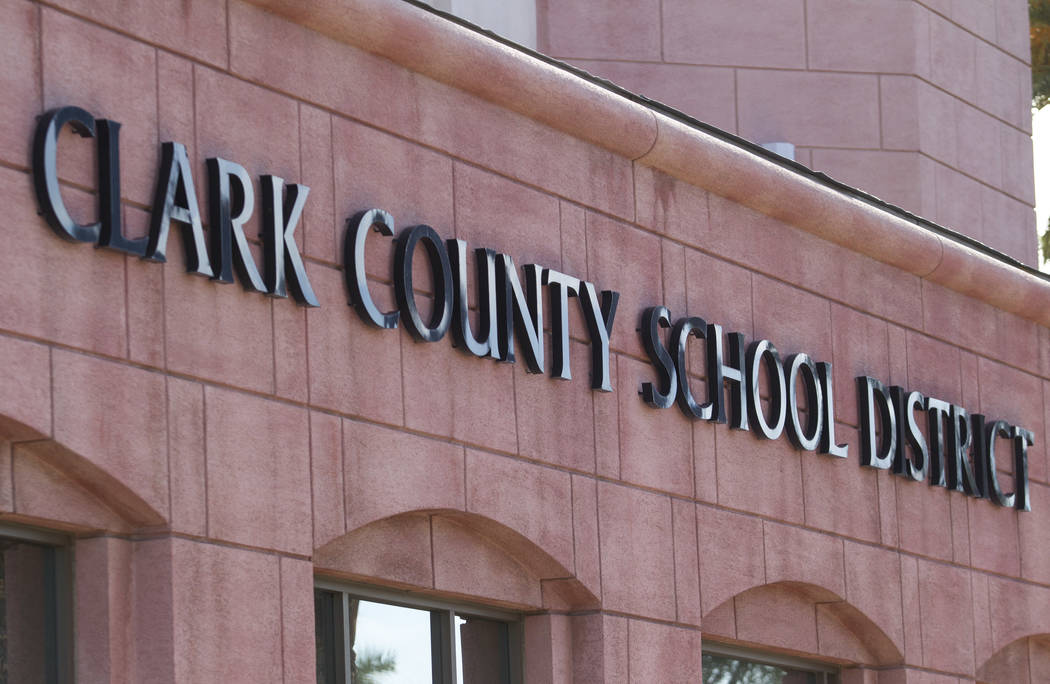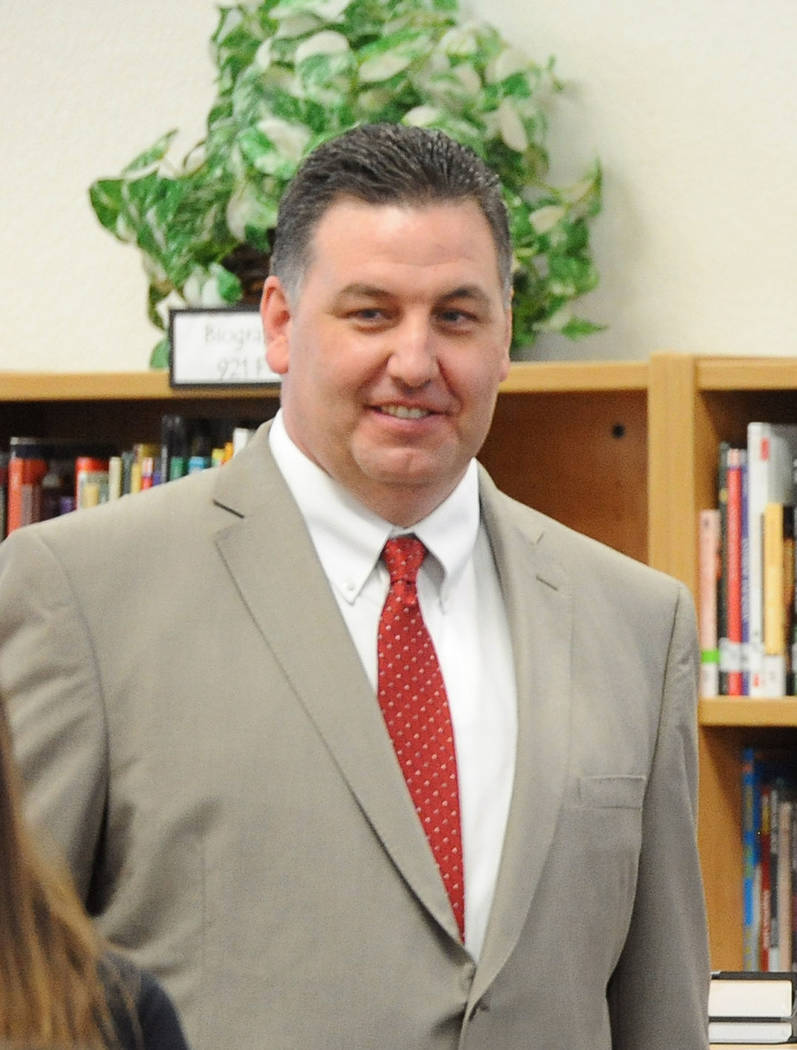Clark County schools must budget without a bottom line


Bonanza High School Principal Joe Petrie’s budget for next year is almost set.
He knows how much he’s getting from the district. He knows how much Title I funding he’ll have to help his students living in poverty. He knows how much Hope Squared funding he’ll have to try to prevent students from getting in trouble.
Below that there’s a big question mark. Petrie and his school advisory team have no idea how much money — if any — Bonanza will get from a state program that doles out “weighted funding” to help struggling students, known as SB178 funding.
“We’re just waiting to get that piece,” he said of the program that in its first year provided $466,800, allowing him to hire four new teachers. In the meantime, he’s formulated A, B and C contingency plans that he can refer to whenever he gets the missing figure.
SB178 funding varies, but it typically makes up a relatively small portion of a school’s total budget. Still, it prevents officials from completing their financial plan for the next school year.
Principals and school organization teams across the Clark County School District are grappling with similar issues this month as they prepare to submit their budgets for the 2018-19 school year, which are due to the district by the end of March. The local planning — now in its second year — is part of the state-mandated reorganization of the district intended to shift much budgeting and decision-making from the central office to schools.
But the district, which was required to adjust its budget timelines under the reorganization law, and the state, which has to hit different deadlines set out by different laws, are like symphony players following different conductors. And that injects dissonance into the budgeting process.
Under the state law governing the SB178 funds, districts and schools statewide must be notified how much money they’re receiving each year by July 1 and must receive the money by July 15, before school starts in August.
A complicated formula
That may not be a big problem for other school districts, but the reorganization law creates a big headache for those trying to make the numbers add up months earlier.
Some state categorical funds that are distributed on a per-school basis, like money from the Victory and Zoom programs, provide nearly the same amount each year. Those programs target low-performing schools that have a high percentage of poor students or students who are learning English .
But because the SB178 funds are targeted at individual underperforming students, they force school officials into more of a guessing game. To receive the money, students must meet three criteria:
■ Score in the bottom 25 percent on state standardized tests.
■ Qualify for free or reduced lunch under federal guidelines or be defined as English language learners.
■ Attend a school that is not already receiving Victory or Zoom funds for underperforming schools.
Schools receive $1,200 per eligible student from a $36 million annual pot of money approved last year by the Legislature. In 2017-18, Clark County took home $34.6 million among 103 schools.
This is where things get even trickier.
The money is doled out first to one-star schools — the lowest rung on a five-tier performance scale — and then to those that are performing better. In 2017-18, state officials estimated they got about halfway through the state’s three-star schools before the money ran out.
The first allocation of SB178 funds was based on star ratings from 2014, the most recent available.
But elementary and middle schools got new ratings in 2017, based on different standards and criteria. While some elementary and middle schools earned higher star ratings under the new system, more slid to a lower rating.
That means there will be more schools on the lower rungs competing for SB178 funds and that schools on the upper end that received the money for the current year may not get anything for 2018-19, even if they didn’t have a change in their rating.
The picture for high schools is even murkier. They still haven’t gotten new star ratings because officials haven’t settled on the new standards on which they will be based. It’s unclear if the state will continue to use 2014 ratings for the schools in allocating SB178 funds or devise a different method.
Contingency planning
At Bonanza High, the uncertainty means that Petrie has to keep options open as he moves toward finalizing his budget.
Because the $466,800 in SB178 funds the school received last year for the 389 students who met the criteria could simply disappear, he’s developing a few staffing plans.
If he gets about the same amount as last year, he wants to use additional Title I money to hire new science and social studies teachers and the SB178 money to hire math and English teachers.
But if he doesn’t get much or any SB178 funding, he would probably use the Title I money for the math and English teachers instead, since those are greater needs at the school.
And he can’t go out and hire qualified teachers until he knows.
The state Department of Education is aware of the issue and is working to try to provide funding information to the district before July 1, said spokesman Greg Bortolin.
“We understand that schools could use this information in order to build the most accurate budgets possible,” he said.
If the state information comes after the deadline in March when schools must submit budgets to the district, principals and advisory teams will have a chance to adjust staffing in the fall. That, however, would preclude providing the additional training and indoctrination that earlier hires receive.
Adjusting the statutory timelines may be an item lawmakers consider in the 2019 session, but until then schools are stuck in a holding pattern.
Contact Meghin Delaney at 702-383-0281 or mdelaney@reviewjournal.com. Follow @MeghinDelaney on Twitter.
Who got what
A look at how much money districts received in 2017-18 under the new weighted-funding formula mandated by SB 178. They do not yet know how much money they’ll receive for 2018-19.
— Carson City: $40,800.
— Churchill County: $24,000.
— Clark County: $34.18 million.
— Humboldt County: $118,800.
— Lincoln County: $3,600.
— Lyon County: $8,400.
— Mineral County: $19,200.
— Nye County: $216,000.
— State Public Charter School Authority: $958,800.
— Washoe County: $382,800.
— White Pine County: $36,000.














